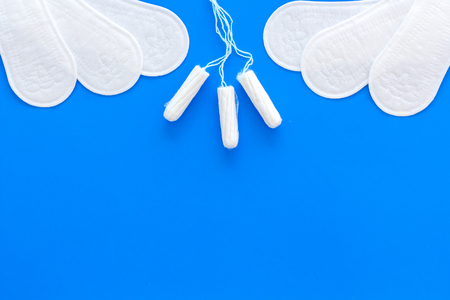
INQUIRER.net Stock Photo
The Memorial Union and Student Experience Center of Oregon State University in the United States will start placing menstrual hygiene products in its restrooms, including those for males, beginning this winter term, according to the university’s student newspaper The Daily Barometer on Jan. 13.
The decision to place menstrual products and install hygiene bins in restrooms, “regardless of gender,” was to answer the needs of students who have menstruation without discriminating based on their gender and financial status, as per Julian Chu, the queer affairs coordinator of the Associated Students of Oregon State University (ASOSU). The initiative will first be applied to the Memorial Union, the Student Experience Center and other student-fee funded buildings in the campus.
“With the increasing numbers of homelessness and poverty in Corvallis, this will be able to alleviate the student’s budgets to other things such as food/groceries, books, gas, rent, etc.,” Chu said in the report.
Chu also said that not all students who menstruate identify as females; some of them may identify as LGBTQIA+ (Lesbian, Gay, Bisexual, Transgender, Queer, Intersex, Asexual), male or others.
“Those students may not be comfortable entering a specific bathroom if we provided these resources only in a specific bathroom, and would exclude them from receiving these resources,” Chu added.
Kylie Boenisch, vice president of ASOSU, on the other hand, said that having access to free menstrual hygiene products would help alleviate students’ stress in the event that they happen to not have these products on hand.
“Products for other normal bodily functions are free in our everyday life, such as toilet paper, tissues, etc.,” said Boenisch. “Access to products is not a privilege, it’s a right.”
But this is just the first step. As per Chu, they hope that the initiative will eventually be applied to all the buildings in the university.
“What we hope to achieve in regards to applying it to all buildings and having the end goal be where OSU pays for these products otherwise students will still be paying for these menstrual products,” said Chu.
For now, the initiative would try to practice a system similar to what the university’s cultural resource centers used to follow from 2018 to 2019, as per the report, where the dispensers were refilled with tampons and sanitary pads every one to two weeks. Cody Cepeda /ra
RELATED STORIES.
Boston’s public schools to provide free menstrual supplies to students
Nifty Girl Scouts use cookie sales to install menstrual hygiene cabinets in school
Why UK football clubs are offering free sanitary products in stadiums